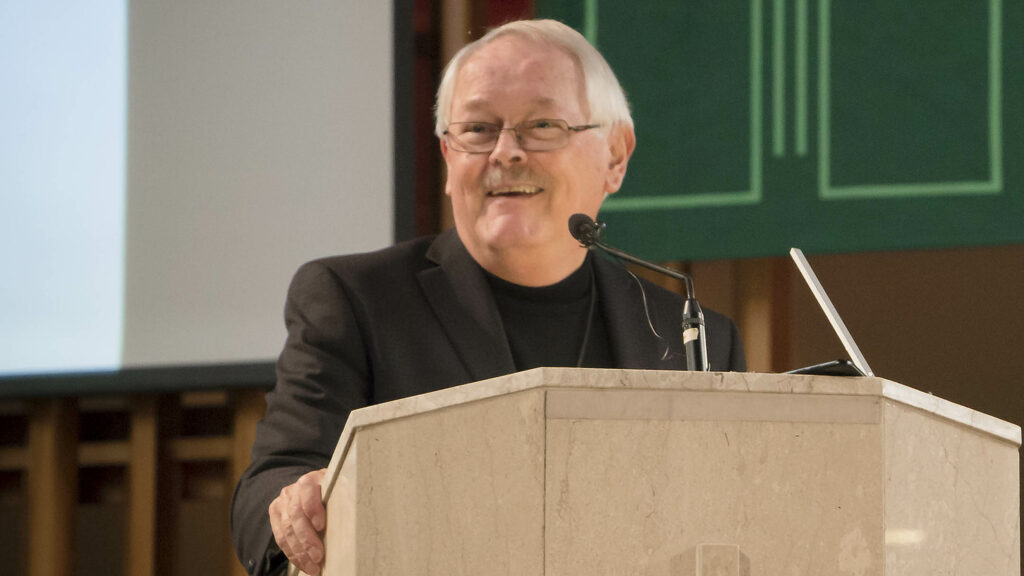We all fear judgment. We fear being seen with all that’s inside us, some of which we don’t want exposed to the light. Conversely, we fear being misunderstood, of not being seen in the full light, of not being seen for who we are. And what we fear most perhaps is final judgment, the ultimate revelation of ourselves.
Whether we are religious or not, most of us fear having to one day face our Maker, judgment day. We fear standing naked in complete light where nothing’s hidden and all that’s in the dark inside us is brought to light.
What’s curious about these fears is that we fear both being known for who we are, even as we fear not being known for who we really are. We fear judgment, even as we long for it. Perhaps that’s because we already intuit what our final judgement will be and how it will take place. Perhaps we already intuit that when we finally stand naked in God’s light we will also finally be understood and that revealing light will not just expose our shortcomings but also make visible our virtues.
That intuition is divinely-placed in us and reflects the reality of our final judgment. When all our secrets are known our secret goodness will also be known. Light exposes everything. For example, here’s how the renowned poet and spiritual writer, Wendell Berry, foresees the final judgment: “I might imagine the dead waking, dazed into a shadowless light in which they know themselves altogether for the first time. It is a light that is merciless until they accept its mercy; by it, they are at once condemned and redeemed. It is Hell until it is Heaven. Seeing themselves in that light, if they are willing, they see how far they have failed the only justice of loving one another. And yet, in suffering the light’s awful clarity, in seeing themselves within it, they see its forgiveness and its beauty and are consoled.”
In many ways, this wonderfully captures it: When, one day, we stand in the full light of God, stripped naked in soul, morally defenseless, with everything we have ever done exposed, that light will, I suspect, indeed be a bit of hell before it turns into heaven. It will expose all that’s selfish and impure inside us and all the ways we have hurt others in our selfishness, even as it will expose its opposite, namely, all that’s selfless and pure inside us. That judgment will bring with it a certain condemnation even as it brings at the same time an understanding, forgiveness, and consolation such as we have never known before. That judgment will be, as Berry suggests, momentarily bitter but ultimately consoling.
The one nuance that I would add to Berry’s idea is a something taken from the Jesuit priest and theologian Karl Rahner. Rahner’s fantasy of our judgment by God after death is very similar to Berry’s, except that, for Rahner, the agent of that judgment will not so much be God’s light as it will be God’s love. For Rahner, the idea is not so much that we will be standing in an unrelenting light that sears and pierces through us, but rather that we will be embraced by a love so unconditional, so understanding, and so gracious that, inside that, we will know instantly all that’s selfish and impure inside us even as we know all that’s pure and selfless.
Therese of Lisieux used to ask God for forgiveness with these words: “Punish me with a kiss!” Judgment day will be exactly that. We will be “punished” by a kiss, by being loved in a way that will make us painfully aware of the sin within us, even as it lets us know that we are good and loveable.
For those of us who are Roman Catholics, this notion of judgment is also, I believe, what we mean by our concept of purgatory.
Purgatory is not a place that’s separate from heaven where one goes for a time to do penance for one’s sins and to purify one’s heart. Our hearts are purified by being embraced by God, not by being separated from God for a time so as to be made worthy of that embrace. As well, as Therese of Lisieux implies, the punishment for our sin is in the embrace itself. Final judgment takes place by being unconditionally embraced by Love. When that happens to the extent that we’re sinful and selfish that embrace of pure goodness and love will make us painfully aware of our own sin and that will be hell until it is heaven.
As a lyric by Leonard Cohen puts it: “Behold the gates of mercy, in arbitrary space, and none of us deserving the cruelty or the grace.”
He’s right. None of us deserves either the cruelty or the grace we experience in this world. And only our final judgment, the embrace of unconditional love, God’s kiss, will make us aware both of how cruel we’ve been and how good we really are.

